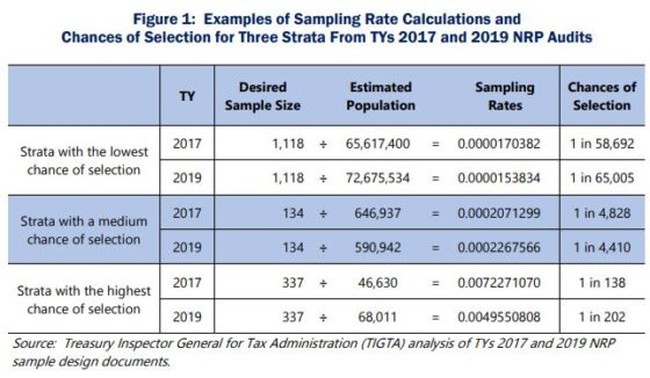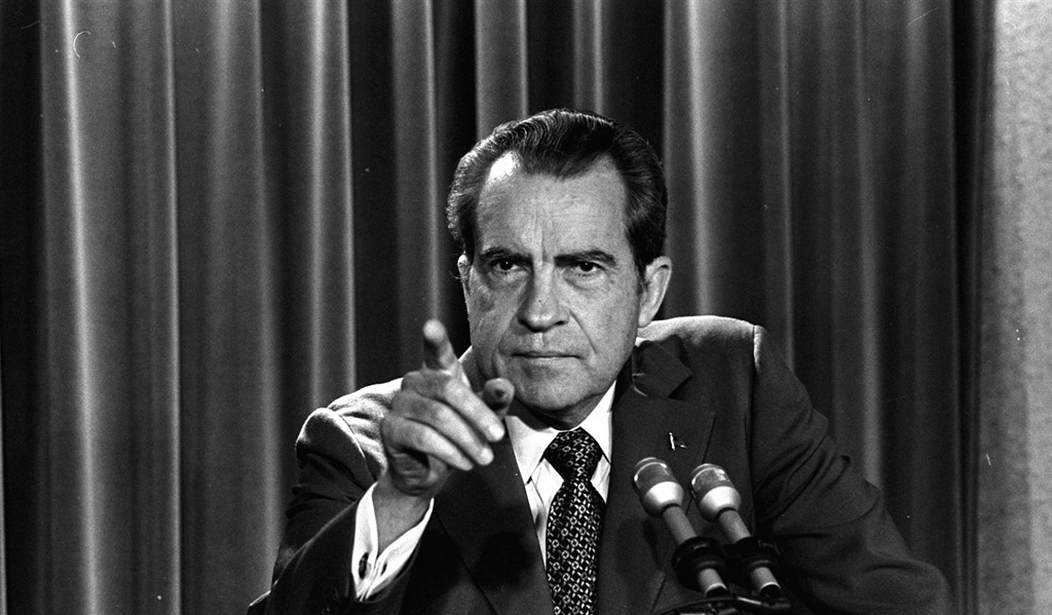This story made a big splash back in July of this year. The NY Times reported that James Comey and Andrew McCabe had both been selected for a random IRS audit. But it wasn’t just any audit, it was the most invasive audit the IRS does:
Among tax lawyers, the most invasive type of random audit carried out by the I.R.S. is known, only partly jokingly, as “an autopsy without the benefit of death.”
The odds of being selected for that audit in any given year are tiny — out of nearly 153 million individual returns filed for 2017, for example, the I.R.S. targeted about 5,000, or roughly one out of 30,600…
Was it sheer coincidence that two close associates would randomly come under the scrutiny of the same audit program within two years of each other? Did something in their returns increase the chances of their being selected? Could the audits have been connected to criminal investigations pursued by the Trump Justice Department against both men, neither of whom was ever charged?
Or did someone in the federal government or at the I.R.S. — an agency that at times, like under the Nixon administration, was used for political purposes but says it has imposed a range of internal controls intended to thwart anyone from improperly using its powers — corrupt the process?
As I wrote at the time, the chances that both men would be selected at random did seem pretty astronomical, but it was also clear that the NY Times wasn’t sure how people got selected for this type of audit. In other words, there could have been other factors that made it more likely than it appeared at first glance. Because the IRS doesn’t reveal how people are selected for such audits, it was impossible to say how likely or unlikely it was. At the time, President Trump denied knowing anything about it but naturally there were a lot of people who were suspicious including Comey and McCabe:
Both former FBI leaders expressed doubts that the audits were truly random, while a former IRS commissioner told the paper that the audits were “suspicious.”…
“Trying to use the IRS to go after political enemies might end up being another instance of Trump succeeding where Nixon failed,” tweeted Robert Maguire, the research director of Citizens for Responsibility and Ethics in Washington.
McCabe went on CNN several times saying he was glad it had been turned over the the IG for investigation but also noting that the odds were “almost mathematically impossible.”
"Layer on top of that our histories with Trump and his administration and being publicly castigated and attacked by him for years now. …I think it’s very reasonable to be concerned that there is something here.” –Andrew McCabe on his + Comey's IRS audit that's now being probed. pic.twitter.com/FWwNb4C6gV
— Ana Cabrera (@AnaCabrera) July 7, 2022
And of course the good folks at the Lincoln Project ran with it:
The news that James Comey and Andrew McCabe mysterious got the worst level of IRS audit isn't surprising on one level.
Authoritarians always turn the power of the state against their enemies.
Last week we learned Mark Meadows tried to get Bill Barr to go after @ProjectLincoln.
— Rick Wilson (@TheRickWilson) July 7, 2022
You mean like when Comey and McCabe, both of whom Trump wanted prosecuted, were selected for a rare IRS audit?
Give me a fucking break, Marco.
Flushing classified documents down the toilet is a crime. You know what happens in the 3rd world? Dictators are above the law. https://t.co/YHJTHGD9BG— Ana Navarro-Cárdenas (@ananavarro) August 9, 2022
MSNBC’s Ali Velshi went all in on the Trump-Nixon comparison.
Ali Velshi examines President Nixon's use of the IRS following report that Comey and McCabe faced "invasive" audit while Trump was president: "[Nixon's] abuse of the IRS became the centerpiece of one of the articles of impeachment against him." https://t.co/3DUHYRJeby pic.twitter.com/sfOECrF6kc
— MSNBC (@MSNBC) July 12, 2022
And Maddow was hinting about it as well even a couple of weeks ago:
“His account of Trump’s desires to use the IRS against his foes comes after the revelation this summer that Comey and McCabe had both been selected for a rare and highly intrusive audit by the tax agency in the years after Mr. Kelly left the White House.” https://t.co/lwm2k25PhN
— Rachel Maddow MSNBC (@maddow) November 14, 2022
I could go on and on but you get the idea. Today, the Inspector General released a report on his investigation which found that both Comey and McCabe had been selected at random, not as a result of some dark conspiracy.
IRS research audits in 2017 and 2019—the years that FBI leaders James Comey and Andrew McCabe were selected for those intensive exams—were random, according to an inspector general’s report released Thursday.
The report from the Treasury Inspector General for Tax Administration found no misconduct or evidence that the Internal Revenue Service’s National Research Program was manipulated to ensure that specific taxpayers would be chosen. Messrs. Comey and McCabe were both fired under then President Donald Trump and have questioned whether they were chosen on purpose.
The inspector general “confirmed that the processes and computer programs worked as designed, which reduces the ability to select specific taxpayers for an NRP audit,” according to the report.
As mentioned above, the original focus was on the fact that the selection of both men seemed statistically unlikely but it wasn’t clear how the selection process actually worked. The WSJ reports that the actual process divides Americans into groups first to ensure those with higher salaries are more likely to be audited.
Although the selections are random, taxpayers are first divided into 88 groups to make sure that higher-income taxpayers have a greater chance of selection. In tax year 2017, the year for which Mr. Comey was audited, taxpayers in the largest group had a 1 in 58,692 chance of being chosen while those at the other end had a 1 in 138 chance. In 2019, the year for which Mr. McCabe was audited, those chances were 1 in 65,005 and 1 in 202, respectively.
Of the 88 groups (they are called “strata” in the IG report) the ones in the middle had about a 1 in 4,400 chance of being selected. The report doesn’t say which groups Comey and McCabe were in specifically but both were making good salaries so their odds of being individually selected were probably a lot lower than the 1 in 30,000 odds the NY Times initially reported. Here’s a table from the report showing the actual odds for different strata:

The bottom line then is that this wasn’t nearly as unlikely as the original NY Times story suggested it was and they didn’t know that because they didn’t really know how the selection process worked. We probably could have bypassed this entire phantom scandal if the Times had looked into it more carefully before going to print with a claim about the odds that was very misleading.








Join the conversation as a VIP Member